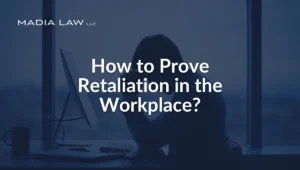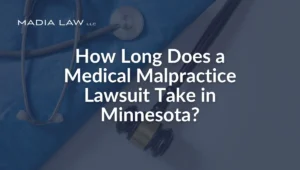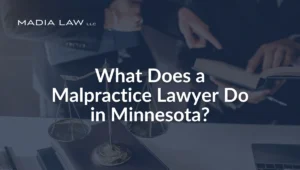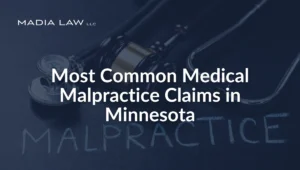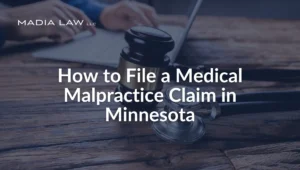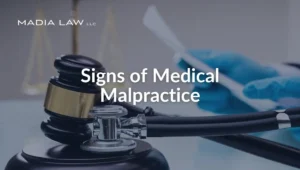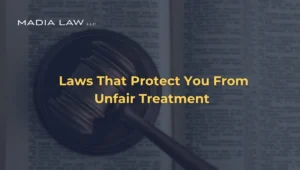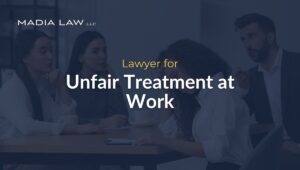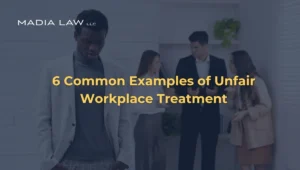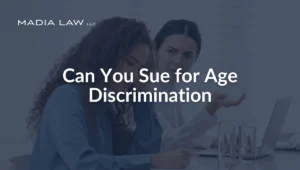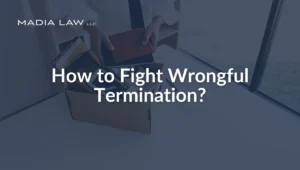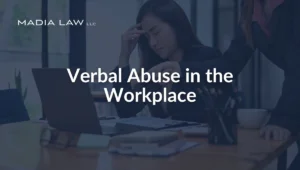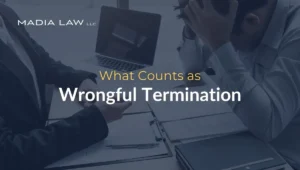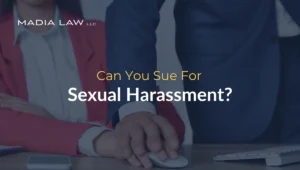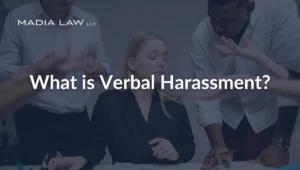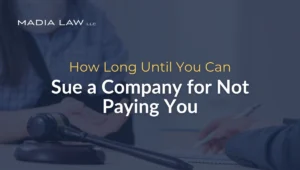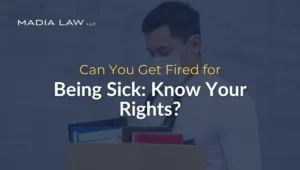
Frequently Asked Questions
We’re trial lawyers. Our core competency – above everything else – is trying cases to juries. And we specialize in beating giants.
First, contact our office and tell one of our amazing legal assistants or paralegals about your situation. Everything you tell them is kept strictly confidential. They’ll talk with you for about 5-10 minutes and get some basic information about you and your potential case. If you have this information handy, it will allow us to proceed more quickly.
For example, if you’re calling about an employment matter, we will want to know who you worked for, what kind of work you did, for how long you worked there, how much you earned, if/when you were terminated, the reason given by your employer for any discipline and termination, and why you think your employer did something unlawful or wrongful.
We will review the information and a member of our staff will get back to you shortly – usually within a day. Our lawyers are generally focused on legal work in current cases and are unable to take the high volume of calls our office receives each day, but rest assured that Ashwin Madia will personally review the information you share with our staff.
We are only able to take a very small number of cases. If we cannot help you, you should contact other attorneys, agencies, and organizations. The fact that we cannot represent you is by no means an indication that your concerns aren’t legitimate or that you don’t have a case. Someone else may be better suited for your situation or simply have more bandwidth.
If we think that we might be able to help you, we’ll set an appointment for you to talk with one of our lawyers. We’ll discuss your potential case with you and give you our assessment of its strengths and weaknesses. Before that call, please be sure to have all relevant documents that you have in your possession. For example, if your case is employment law related, that could include: pay-stubs, personnel files, employment handbooks/policies, letters from your employer (including your termination letter), any text messages or emails that you think are important, and any other documents that you think might be helpful.
If we then mutually agree that we will represent you, we will send you a retainer agreement. After the agreement is fully executed, we will advise you how to proceed. Usually, we begin an extensive intake process in which we work with you to gather the information and materials that are necessary for our representation of you and will best prepare us for your case.
The value of your case depends on a number of things.
The value of your case – either at settlement or trial – depends on a number of things, including: the strength of your case on the merits; the amount of damages you’ve suffered; whether the defendant has the capacity to pay a large amount of damages; and your tolerance for risk.
How much your case is worth depends in part on the strength of your case on the merits.
In employment and civil rights cases, defendants almost always bring a motion for summary judgment. A motion for summary judgment is basically like a motion to dismiss your case – except that it comes after discovery instead of at the beginning of the case. The defendants basically argue to the Court that – even if all the documents and deposition testimony are taken in the light most favorable to you – no jury could find in your favor as a matter of law and therefore the judge should dismiss your case and not even give you a trial. Unfortunately, many of these motions are granted – so defendants bring them in almost every case.
At Madia, we’ve had a solid record on beating these motions, because we pride ourselves on doing solid discovery: on getting the admissions we need from defendants during discovery so that judges have no choice but to deny the defense motions for summary judgment. One of the things we analyze during our legal consultation with you is the likelihood of your case beating summary judgment. We’ll sit down with you and go over the evidence that we believe is likely to come in: your testimony, documents or other evidence, testimony of other witnesses, and what evidence we think the defense will offer. We’ll analyze that against relevant caselaw and tell you what we think the likelihood is that your case will survive summary judgment.
If your case is likely to survive summary judgment, then its settlement value goes up tremendously. We make sure the defendant knows that it will have to go all the way through discovery only to lose its motion for summary judgment and have to face a jury trial. Our experience has been that defendants don’t like to face juries, and they really don’t like to face juries against us. So a defendant may pay a premium very early in your case to settle it, in order to avoid having to litigate (and pay legal fees) all the way through summary judgment, only to lose at summary judgment and then have to pay you a larger amount in order to avoid trial.
How much your case is worth depends in part on the damages you’ve suffered.
For example, in an employment wrongful termination case, you’re entitled to: back pay damages, front pay damages, emotional distress damages, punitive damages, statutory interest, and your attorney fees and costs.
Back pay is the amount of pay you’ve lost from the time of your termination to present. So, if you were making $40,000 a year plus benefits before you were wrongfully terminated, and you’ve been out of work for a year, then you’ve got $40,000 in back pay damages.
Front pay damages is the amount of money you’re projected to lose going into the future. These are harder to win than back pay damages, because courts expect you to try to find work and mitigate your damages. Generally, you can only get 1-3 years’ worth of front pay damages, except in exceptional cases. For both back and front pay damages, you need to show that you’ve attempted to mitigate damages by finding another job. So, keep records of your job search so that the defense can’t claim that you just sat on your hands after its unlawful termination of you. Sometimes, things that are good for your life are not good for your lawsuit. You may find another job very shortly after your wrongful termination that actually pays you more money than your first job. In that case, your wage loss damages would be limited to the time between jobs, and you wouldn’t get any front pay because you’re making more money. So the value of your case would decrease, but obviously, it’s much better for your life.
Emotional distress damages are available and increase the value of your case. Being discriminated against by a company is awful, and companies have to pay for that.
Both federal and Minnesota anti-discrimination statutes also authorize punitive damages for unlawful discrimination. The threat of these damages also adds value to your case. Finally, a hammer to add value to your case is the threat of attorney fees.
The anti-discrimination statutes and civil rights acts are fee-shifting statutes, meaning that – if you go to trial and win, the defendant has to pay all of your attorney fees in addition the jury verdict for you. Attorneys will generally put hundreds of hours into your case to get it to trial, and hundreds more to try the case, resulting in fees to defendants of hundreds of thousands of dollars. Often, defendants would rather settle with you than risk having to pay your fees on top of everything else. So, in valuing your case and trying to figure out how much your case is worth, one thing to think about is the amount of damages that you’ve suffered.
How much your case is worth depends on the ability of the defendant to pay a large judgment.
Some individuals or small companies just don’t have the money to pay a judgment. This reduces the value of your case. The defendant has the advantage of challenging you to go ahead and get a verdict at trial, as it doesn’t have assets sufficient for you to satisfy a judgment. That gives a defendant some leverage in settlement negotiations.
We’ll talk to you about the defendant and whether it makes sense to sue. Generally, collectability is not a concern and is a non-issue for most mid-size to larger companies. Even with smaller companies, it may not be an issue. But it’s definitely a factor to consider as we discuss how much your case is worth.
One of the most important factors in the value of your case is your tolerance for risk.
With many things in life, the greater the potential risk, the greater the potential reward. Lawsuits are not much different. There is greater risk in litigating a case through discovery and summary judgment, as there is always a risk that the judge will dismiss your case no matter how strong it is. However, the value of your case after summary judgment is usually much greater than it was at the beginning. The value increases because the defendant has taken their best shot to dismiss it and lost, and now faces a jury trial (which means a lot of risk to the defendant that they are willing to pay to avoid).
And – if you keep going – there’s more potential risk and reward. Trial presents another risk. The jury could go with the defendant and award you nothing, in which case you’ll go home with zero. On the other hand, the jury could ring the bell on the defendant and award you a large amount at trial. Again, you’re compensated for the increased risk by the potential of a large jury award far beyond what the defendant would offer at settlement.
Some people have a low tolerance for risk. They would rather take a sure thing and settle their case early, even if they have to settle for less than what we think we could get after summary judgment or trial. On the other end of the spectrum, we have some clients that have a very high tolerance for risk – they want to go all the way through trial and take their chances, no matter what the defense offers at settlement.
Most of our clients fall somewhere in between on the risk spectrum. They’re willing to endure some risk to push forward with the case if the defendant will not offer a fair amount, but at the same time are willing to engage in settlement negotiations once the defendant starts making fair offers. When we talk with you about how much your case is worth, one thing we’ll need to discuss is your tolerance for risk.
Let’s talk about the value of your case.
Contact us today. If we think that we can help with your case, we’ll talk about the above factors to give you our opinion on the potential value of your case.
What’s the difference between a trial lawyer and a litigator?
Trial lawyers think about cases in a fundamentally different way than litigators. Trial lawyers plan on every case going to trial and prepare accordingly. We start cases by thinking about our closing argument at trial – the last words that we want the jury to hear. And we work backwards from there – figuring out what evidence we’ll need in order to make that closing argument and, in turn, what discovery strategy we’ll need in order to have that evidence at trial.
Trial lawyers understand that defendants will not pay top dollar to settle cases until and unless we convince them – beyond any doubt – that we’re going to beat them at trial. Litigators think about cases in chronological order – they start with initial pleadings, then move to discovery, then motions, and then, finally, they start to think about trial. That’s way too late. You’ve already lost if the first time your lawyers think about trial is right before trial.
How do I know that you are actually trial lawyers?
By our results, philosophy, and training . And because we’re willing to put our money where our mouth is, and get paid on success – not hourly arrangements like most firms.
What kind of fee arrangements do you have?
We’re creative and we love making arrangements that tie our pay to success. If you want a straight hourly agreement, we can do it. But we prefer contingency or blended fee (either flat fee and contingency or hourly and contingency) agreements.
How does FINRA arbitration differ from normal civil litigation?
Most securities claims are subject to mandatory arbitration. On the plus side, the process will go much faster than civil litigation – without lengthy appeals. Discovery is also limited and streamlined, which helps move the process along. On the minus side, your case will not be decided by a jury from our community, but rather a panel of 3 arbitrators – all of whom will have some ties or background in the financial industry. While arbitration has rules, they are not as strict as the Federal Rules of Civil Procedure (in court), so both sides will have more leeway and discretion in the presentation of their cases.
How will having a trial lawyer handle my case help me if my claim is subject to mandatory arbitration?
Because the skill set is the same: taking a complex set of facts and distilling it into a compelling and persuasive narrative for a finder of fact. We think of the arbitration panel as just one more jury – albeit with its own set of unique backgrounds, biases, and preferences. We build the case accordingly.
-
What Is the Difference Between Exempt and Non-Exempt Employees in Minnesota?
-
Can I Sue My Employer for Not Accommodating My Disability in Minnesota?
-
How to Prove Retaliation in the Workplace: A Guide for Minnesota Employees
-
Can You Get Fired for Being Pregnant in Minnesota?
-
What Is Considered Harassment at Work in Minnesota?
-
How Long Does a Nursing Home Lawsuit Take in Minnesota?
-
How Long Does a Medical Malpractice Lawsuit Take in Minnesota?
-
What Does a Malpractice Lawyer Do in Minnesota? Your Legal Guide
-
Most Common Medical Malpractice Claims in Minnesota (2025)
-
Signs of Nursing Home Abuse and Neglect You Should Never Ignore
-
How to File a Medical Malpractice Claim in Minnesota
-
How to Report Nursing Home Abuse in Minnesota
-
What is Considered Nursing Home Abuse in Minnesota?
-
What is Considered Medical Malpractice in Minnesota? | What Qualifies and What Does Not
-
Top 5 Signs of Medical Malpractice: What to Look For When Something Feels Wrong
-
How to Prove Nursing Home Negligence – Your Legal Guide
-
Laws That Protect You from Unfair Treatment in the Workplace
-
Lawyer for Unfair Treatment at Work: When to Call & Sue
-
6 Common Examples of Unfair Workplace Treatment
-
Can You Sue for Age Discrimination
-
How to Fight Wrongful Termination
-
Can I Sue My Employer for Discrimination? Legal Rights Explained
-
How to Take Action Against Verbal Abuse in the Workplace: Your Legal Rights
-
What Counts as Wrongful Termination
-
Can You Sue for Sexual Harassment
-
Can I be Fired for Leaving at My Scheduled Time
-
What is Verbal Harassment? Your Rights & How to Stop It
-
How Long Until You Can Sue a Company for Not Paying You
-
Can You Get Fired for Being Sick: Know Your Rights
-
Minnesota Birth Injury Lawyer
-
What Is a Civil Rights Violation?
-
What To Do if You Are Wrongfully Terminated
-
Small Business Wins $350,000 Settlement in Insurance Payout Suit
-
How Serious Are Commercial Truck Accident Injuries?
-
How Is Compensation Calculated in a Birth Injury Lawsuit?
-
What Happens When You File a Nursing Home Complaint?
-
How Long Should You Be in Pain After a Car Accident?
-
Are Most Birth Injuries Preventable?
-
Who Do You Report Nursing Home Abuse To?
-
How to Obtain Your Medical Records in Minnesota
-
Is It Possible to File a Mental Health Malpractice Claim?
-
How Long Does It Take for a Soft Tissue Injury to Heal?
-
What Can Happen When Anesthesia Isn’t Properly Monitored?
-
How Long Does It Take to Settle a Medical Malpractice Claim?
-
What Is Ghost Surgery and How Often Does It Happen?
-
How To Report a Dangerous Road Condition in Minneapolis
-
What do I do if I’ve been injured at work?
-
What do I do if I’ve been injured on the job?
-
Can my employer fire me if I’m pregnant?
-
What Should I do if I’ve been Fired?
-
What to do when your employer lied to you to get you to take a job.
-
Potential Clients
-
How Much Is My Case Worth?
-
Business Litigation FAQs
-
FINRA Arbitration and Securities Litigation
-
Trial Practice
-
Employment & Civil Rights
-
Is the Affordable Care Act Constitutional?
-
Can Wisconsin’s new law limiting collective bargaining in the public sector be challenged in court?


